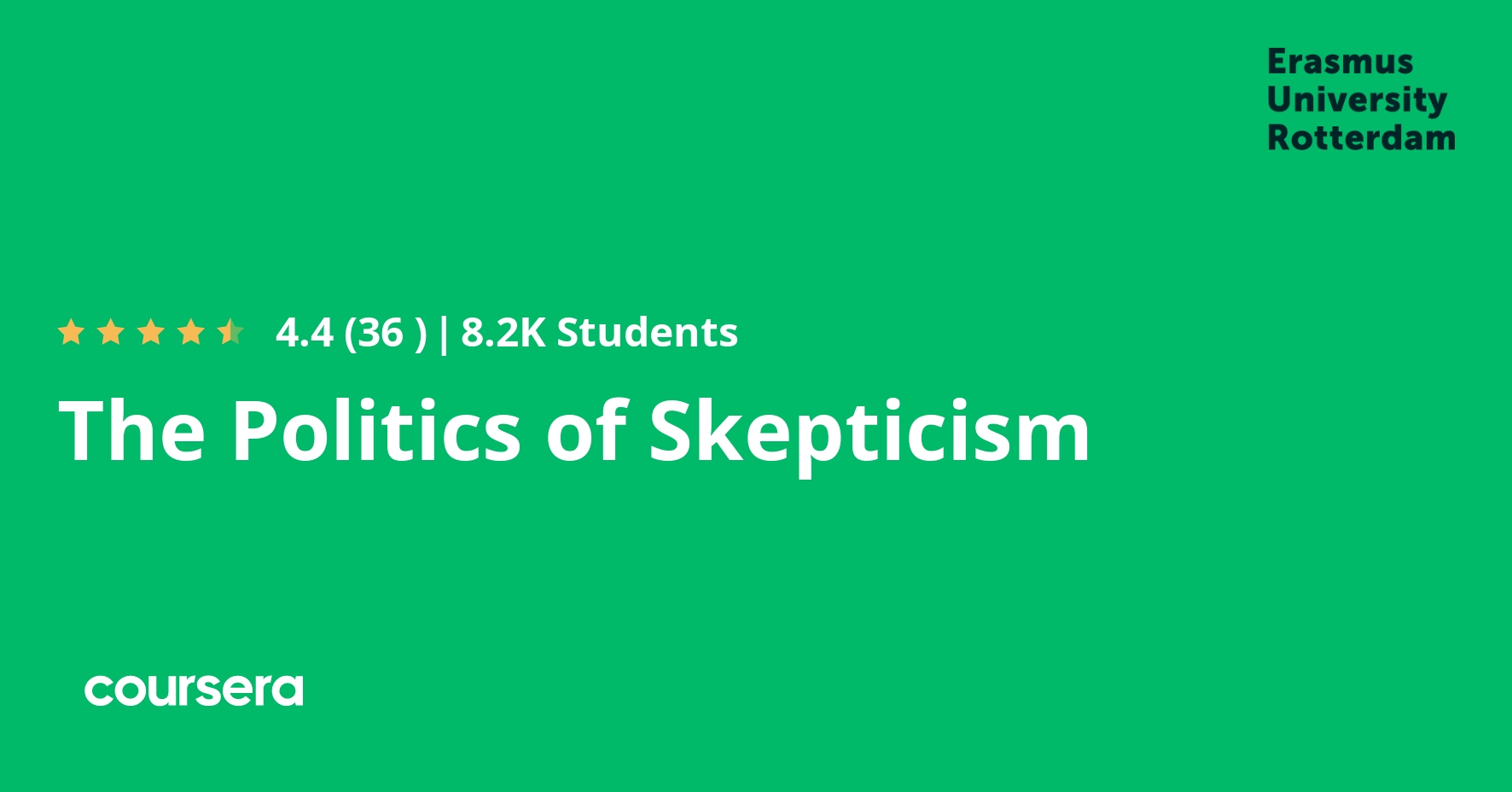Description
This is a course about the history of Skepticism from the ancient Greeks to today, with special attention to the political ramifications of questioning man’s ability to know the world and himself with any certainty. We will discuss the debates raging between Plato and the Sophists, the rise of Christianity in the Roman world, and the so-called ‘Skeptical Crisis’ of the Renaissance as well as Pierre Bayle’s Skepticism and David Hume’s. In addition the Natural Law tradition will be explored and the relationship between Skepticism and Conservatism.
In the second part, we will explore the systematic relations between Skepticism and politics. What is skeptical doubt? When is doubt relevant? How does Skepticism relate to tolerance and to freedom of expression? And can it help us to solve political problems not only in a critical, but also in a creative way?
What you will learn
Political Origins
We will discuss the historical and philosophical backgrounds to Plato’s rejection of democracy: they will turn out to be intimately connected to his rejection of Skepticism. In addition we will present Karl Popper’s highly critical assessment of Plato’s ‘totalitarian’ alternative.
Skepticism and Religion
We will sketch some of the skeptical arguments against Christianity developed by Roman philosophers, but we will also see how Skepticism soon turned into an ally of Christian theology. By the end of the seventeenth century, however, Pierre Bayle turned Skepticism into a highly questionable source of support to revealed religion.
Skepticism and Natural Law
We will turn to the relevance of the early modern natural law tradition, serving as as an antidote to Skepticism. Grotius’s efforts will be discussed, and we will see how during the eighteenth century David Hume pushed Skepticism to its ultimate and highly disturbing conclusion.
Skepticism and Conservatism
We will focus on the intimate relationship between Skepticism and the origins of eighteenth-century conservatism: Edmund Burke’s analysis of the French Revolution will be put into perspective. But we will also pay attention to the way in which Skepticism came to serve as a progressive and liberating force, for instance in its critique of biblical authority.





